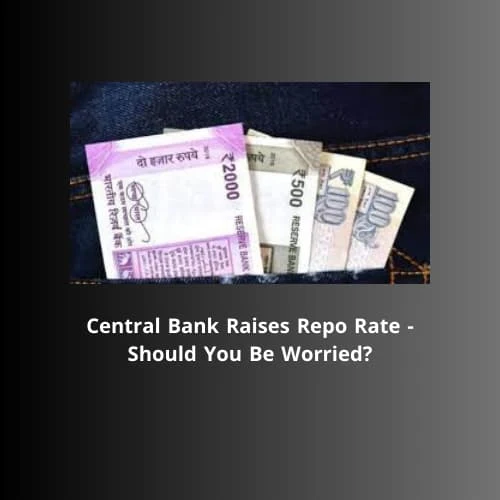The repo rate is a critical tool used by central banks to regulate the economy and control inflation. When the central bank raises the repo rate, it signifies an increase in the cost of borrowing for commercial banks, which has ripple effects on the overall economy. This article explores the reasons behind the central bank's decision to raise the repo rate and discusses the potential implications for borrowers, businesses, and the general public.
Understanding the Repo Rate
The repo rate refers to the interest rate at which commercial banks borrow money from the central bank. It acts as a benchmark for other interest rates in the economy and has a significant impact on borrowing costs for businesses and consumers.
Central banks use the repo rate as a monetary policy tool to influence economic growth and maintain price stability. By raising the repo rate, the central bank aims to reduce borrowing and spending in the economy, which can help control inflation.
Reasons for Central Bank's Decision to Raise Repo Rate
Several factors may influence a central bank's decision to raise the repo rate. Economic indicators such as rising inflation, increased consumer spending, and potential overheating of the economy may prompt the central bank to take action. By increasing the repo rate, the central bank aims to curb inflationary pressures and ensure price stability. It is a delicate balancing act between stimulating economic growth and preventing runaway inflation.
Potential Implications of a Raised Repo Rate
A raised repo rate can have far-reaching implications for borrowers and businesses. As the cost of borrowing increases, individuals and companies may find it more challenging to access credit and may face higher interest payments on existing loans.
This can slow down consumption and investment, potentially dampening economic growth. However, the impact can vary across sectors and industries. Some sectors may be more resilient to interest rate hikes, while others, such as real estate or consumer durables, could experience a more significant impact.
Should You Be Worried?
Whether or not you should be worried about a raised repo rate depends on your financial situation and circumstances. It is essential to evaluate your level of debt and loan obligations, as higher interest rates could lead to increased monthly payments.
If you have a fixed-rate loan, the impact may be limited, but variable-rate loans could see a noticeable increase in interest costs. Additionally, it is crucial to consider the broader economic landscape, including inflationary pressures and the central bank's rationale for raising the repo rate.
In conclusion, a central bank's decision to raise the repo rate reflects its concern about inflationary pressures and the need to maintain price stability. While the increased borrowing costs may pose challenges for borrowers and businesses, the implications vary depending on individual circumstances and the overall economic environment. It is advisable to assess your financial situation and stay informed about the central bank's policies to make informed decisions regarding borrowing, investment, and personal finances.
